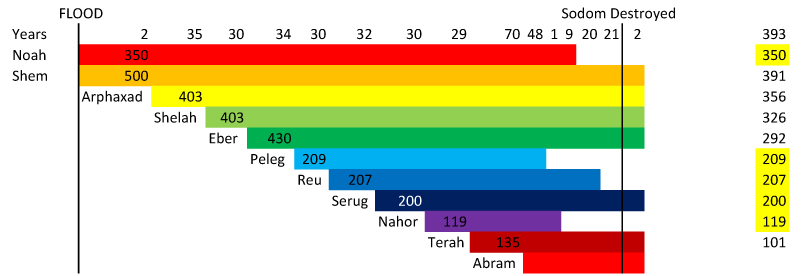In another essay I began “to consider what I called ‘Paul’s religious mind’ through the lens of Jesus’ teaching” in Matthew 18:15-17 as ballast for my own bias toward mercy. Originally, I was concerned about Paul’s judgment from a distance of the man who had his father’s wife. Here is the relevant text in context (1 Corinthians 5:1-5 NET Table1 Table2 Table3):
It is actually reported that sexual immorality (πορνεία) exists among you, the kind of immorality (πορνεία) that is not permitted even among the Gentiles, so that someone is cohabiting with (ἔχειν, a form of ἔχω; literally, has) his father’s wife [Table]. And you are proud! Shouldn’t you have been deeply sorrowful instead and removed the one who did this from among you? For even though I am absent physically, I am present in spirit. And I have already judged (κέκρικα, a form of κρίνω) the one who did this, just as though I were present. When you gather together in the name of our Lord Jesus, and I am with you in spirit, along with the power of our Lord Jesus, turn this man over to Satan for the destruction of the flesh, so that his spirit may be saved in the day of the Lord.
When I revisited this text and compared it to Jesus’ message to the angel of the church in Thyatira (Revelation 2:18-29) I was more concerned about its impact on the ἐκκλησία, those called by God:[1]
Let’s grant, for the sake of argument, that Paul as an apostle had the authority and God-given wisdom to recognize a weed [Matthew 13:27-30] and uproot it. Did he have the authority to turn the church of Jesus Christ in Corinth (and any who hear him today) from the love, joy, peace, patience, kindness, goodness, faithfulness, gentleness, and self-control of the Holy Spirit, and transform them into a paranoid police force? Rather than knowing no law against loving our neighbor as well as our enemies, does every infraction of any law call us to dam up the fruit of the Holy Spirit? Must we judge one another constantly lest we be proud for loving one another excessively?
As I began to counter my own bias I assumed that members of Chloe’s household had already taken one or two others to the man who had his father’s wife so that at the testimony of two or three witnesses every matter may be established[2] and that he had refused to listen (παρακούσῃ, a form of παρακούω) to them.[3] What we have in 1 Corinthians 5:1-5 then is Paul telling it to the church. I assumed this because I think Paul was writing about the same man in 2 Corinthians 2:5-8 (NET):
But if anyone has caused sadness, he has not saddened me alone, but to some extent (not to exaggerate) he has saddened all of you as well. This punishment on such an individual by the majority is enough for him, so that now instead you should rather forgive and comfort him. This will keep him from being overwhelmed by excessive grief to the point of despair. Therefore I urge you to reaffirm your love for him.
In other words, the man who had his father’s wife listened to the church when he was shunned by the church. If one doesn’t think the one who caused sadness was the same one who had his father’s wife then 1 Corinthians 5:1-5 would be an example of excommunication rather than shunning. If he refuses to listen (παρακούσῃ, a form of παρακούω) to the church, treat him like a Gentile or a tax collector (τελώνης),[4] Jesus said. He was quite clear how to treat Gentiles and tax collectors (Matthew 5:44-48 NET):
But I say to you, love your enemy and pray for those who persecute you, so that you may be like your Father in heaven, since he causes the sun to rise on the evil and the good, and sends rain on the righteous and the unrighteous. For if you love those who love you, what reward do you have? Even the tax collectors (τελῶναι, a form of τελώνης) do the same, don’t they? And if you only greet your brothers, what more do you do? Even the Gentiles do the same, don’t they? So then, be perfect (τέλειοι, a form of τέλειος), as your heavenly Father is perfect (τέλειος).
From the viewpoint of the ἐκκλησία very little has changed except the credence given to what is said or done by the one no longer in good standing. Those who are led by the Spirit of God don’t think, for instance, “my father’s wife is the girl for me” because so-and-so had his father’s wife. But the church is comprised of people who are led by the Spirit of God and others who are not, and both real estate and tangible property are at stake. Paul didn’t differentiate between the ἐκκλησία and the not-for-profit corporations called churches the way I attempt to do.
In his article “Why are priests celibate?” on the U.S. Catholic: Faith in Real Life website Santiago Cortes-Sjoberg wrote:
It was not until the turn of the first millennium that the church started to canonically regulate clerical marriage, mainly in response to clerical abuses and corruption. Of particular concern was the transmission at the death of a clergyman of church property to his wife and children. The Council of Pavia (1018), for example, issued regulations on how to deal with children of clergy, declaring them serfs of the church, unable to be ordained and barring them from inheriting their father’s benefices (income connected to a church office or parish).
In 1075 Pope Gregory VII issued a decree effectively barring married priests from ministry, a discipline formalized by the First Lateran Council in 1123.
I tell you the truth, Jesus continued, whatever you bind on earth will have been bound in heaven, and whatever you release on earth will have been released in heaven.[5] I’ve quoted from a will have been bound translation of the New Testament though will be bound is just as common. I’m no Greek scholar but will be bound appears to be the more grammatically correct translation of ἔσται. The relevant entry on GotQuestions.org quoted will be bound but understood it as will have already been bound: “the syntax of the Greek text makes the meaning clear. What you bind on earth will have already been bound in heaven.”
I saw a play in Los Angeles about thirty-five years ago based on this verse. A blind priest on a mission journey baptized a flock of penguins. God and Satan scrambled to catch up, granting the penguins rational souls so they could be held accountable for their sins and tempting them to sin, respectively. The penguins got very excited about the command to be fruitful and multiply. I assume “will have already been bound in heaven” exists as a possible translation to counter extreme views like that play.
Keith Drury in his article posted on The Voice, “Who says what the Bible says? The keys to the kingdom, binding and loosing,” outlines a fairly extensive process for addressing the opposite extreme (though he quoted will be bound) of one individual or even a few gathered in Jesus’ name deciding what has already been bound in heaven. Mr. Drury begins with a group of four men plus his wife as “spiritual director,” moves to a group of six from his Sunday School class to his Sunday School class as a whole, his pastor, his entire church of 1,500 people, his denomination and finally church tradition—“Christians through history.” In the Catholic catechism the Pope and the College of Cardinals fill this function.
Along the way Mr. Drury wrote this about small groups in John Wesley’s churches: “They did not have a short prayer and send the member out into the woods to ‘sense from the Holy Spirit’ if they had sinned or not. They did not even send them off to study the Bible.” I don’t believe this was meant quite as flippantly as it sounded since he described the four men he consulted first as “experts in the Bible, theology, and philosophy.” I think Mr. Drury understands that apart from the Holy Spirit and the Bible any triangulation by consensus could be much worse than useless. So let’s attempt to look at the Bible, led by the Spirit of God.
| Jesus | Jerusalem Council |
Paul |
| Do not think that I have come to abolish the law or the prophets. I have not come to abolish these things but to fulfill them. I tell you the truth, until heaven and earth pass away not the smallest letter or stroke of a letter will pass from the law until everything takes place. So anyone who breaks one of the least of these commands and teaches others to do so will be called least in the kingdom of heaven, but whoever obeys them and teaches others to do so will be called great in the kingdom of heaven. For I tell you, unless your righteousness goes beyond that of the experts in the law and the Pharisees, you will never enter the kingdom of heaven.
Matthew 5:17-20 (NET) |
From the apostles and elders, your brothers, to the Gentile brothers and sisters in Antioch, Syria, and Cilicia, greetings! Since we have heard that some have gone out from among us with no orders from us and have confused you, upsetting your minds by what they said, we have unanimously decided to choose men to send to you along with our dear friends Barnabas and Paul, who have risked their lives for the name of our Lord Jesus Christ. Therefore we are sending Judas and Silas who will tell you these things themselves in person. For it seemed best to the Holy Spirit and to us not to place any greater burden on you than these necessary rules: that you abstain from meat that has been sacrificed to idols and from blood and from what has been strangled and from sexual immorality. If you keep yourselves from doing these things, you will do well. Farewell. | For all who have sinned apart from the law will also perish apart from the law, and all who have sinned under the law will be judged by the law. For it is not those who hear the law who are righteous before God, but those who do the law will be declared righteous. For whenever the Gentiles, who do not have the law, do by nature the things required by the law, these who do not have the law are a law to themselves [Table]. They show that the work of the law is written in their hearts, as their conscience bears witness and their conflicting thoughts accuse or else defend them, on the day when God will judge the secrets of human hearts, according to my gospel through Christ Jesus.
But if you call yourself a Jew and rely on the law and boast of your relationship to God [Table] and know his will and approve the superior things because you receive instruction from the law, and if you are convinced that you yourself are a guide to the blind, a light to those who are in darkness, an educator of the senseless, a teacher of little children, because you have in the law the essential features of knowledge and of the truth – therefore you who teach someone else, do you not teach yourself? You who preach against stealing, do you steal? You who tell others not to commit adultery, do you commit adultery? You who abhor idols, do you rob temples? You who boast in the law dishonor God by transgressing the law! For just as it is written, “the name of God is being blasphemed among the Gentiles because of you.” For circumcision has its value if you practice the law, but if you break the law, your circumcision has become uncircumcision. Therefore if the uncircumcised man obeys the righteous requirements of the law, will not his uncircumcision be regarded as circumcision? [Table] And will not the physically uncircumcised man who keeps the law judge you who, despite the written code and circumcision, transgress the law? For a person is not a Jew who is one outwardly, nor is circumcision something that is outward in the flesh, but someone is a Jew who is one inwardly, and circumcision is of the heart by the Spirit and not by the written code. This person’s praise is not from people but from God. Romans 2:12-29 (NET) |
It seems fairly clear who had more regard for Jesus’ command not to think that He had come to abolish (καταλῦσαι, a form of καταλύω) the law or the prophets (not to mention more concern for the souls of Gentiles). The unanimous decision of the church fathers to give Gentiles James’ (Acts 15:13-21) abbreviated version of the law was not presided over by a successor to Peter but by Peter himself. Yes, Paul instigated the Jerusalem Council (Acts 15:1-3 NET). Yes, Paul taught the council’s decision for a time (Acts 16:3-5 NET), but ultimately studying the Scriptures (the Old Testament) in the power of the Holy Spirit Paul wrote the letter to believers in Rome. He said many more things[6] about the law there. I’ll highlight only two more of them here.
The most direct route to satisfying a hunger and thirst for righteousness, obeying the law in my own strength, is closed (if it was ever actually open after Adam ate the forbidden fruit). For the law…was weakened through the flesh…[T]he outlook of the flesh is hostile to God, for it does not submit to the law of God, nor is it able to do so. Those who are in the flesh cannot please God.[7] The indirect route (1 Peter 1:18-20; John 14:6) was ever the best (Romans 3:19-22 NET).
Now we know that whatever the law says, it says to those who are under the law, so that every mouth may be silenced and the whole world may be held accountable to God. For no one is declared righteous before him by the works of the law, for through the law comes the knowledge of sin. But now apart from the law the righteousness of God (which is attested by the law and the prophets) has been disclosed – namely, the righteousness of God through the faithfulness of Jesus Christ for all who believe.
My point here is: in the Bible for all who are led by the Spirit of God to see an individual led by the same Spirit to study the Scriptures corrected an erroneous doctrine proposed by the unanimous consensus of church authorities who claimed the imprimatur of the Holy Spirit. Granted, none of these authorities had access to 1 Corinthians 13, Romans or Galatians. Their decision became in effect the irritation that formed these pearls in Paul.
I am so proud of myself any time I understand something Paul wrote it’s practically sinful. I can barely imagine taking the Old Testament, the Gospel and the mess[8] in Corinth and writing these letters by the Holy Spirit for the very first time. I think of the thirteenth chapter of 1 Corinthians, love – a way that is beyond comparison, as an outline that was fleshed out considerably in Romans, and Galatians seems to assume Romans. I assume then that they were written in that order though many disagree. Of course, the Holy Spirit knew the content of all three letters and could have had Paul write them in any order He preferred.
So if Jesus communicated supernaturally through his Spirit to Paul to hand the one who had his father’s wife over to Satan, there is really nothing I can say about that. My points are all based on the insight that 1 Corinthians 5:1-5 seems contrary to Jesus’ teaching[9] and Paul’s own writing elsewhere (Galatians 6:1-5). I concede the need for excommunication so that church property doesn’t fall into possession of those not led by the Spirit of God. I’m not absolutely convinced that outcome has always been the case. In fact, I’m beginning to wonder if church property, church position and church authority are coveted more by those who live according to the flesh than by those who live according to the Spirit of God (Romans 8:5-14 NET).
There are any number of organizations in the world dedicated to instilling compliance in their members to, and even faith in, various rules and norms. Some are arguably better at it than churches. But none of these worldly organizations can offer believers the indwelling Holy Spirit of God, Christ in you, the hope of glory.[10]
[1] Paul’s Religious Mind Revisited, Part 1
[5] Matthew 18:18 (NET) Table
[6] Romans 3:19-31; Romans 4:13-25; Romans 5:12-21; Romans 6:12-20; Romans 7:1-25; Romans 8:1-11; Romans 9:30-33; Romans 10:1-13; Romans 13:8-10
[8] It is possible that the situation in Corinth wasn’t quite the “mess” Paul thought it was. Jesus thought He had many people in this city. See also: Paul in Corinth
[9] Paul’s Religious Mind; Paul’s Religious Mind Revisited, Part 1



